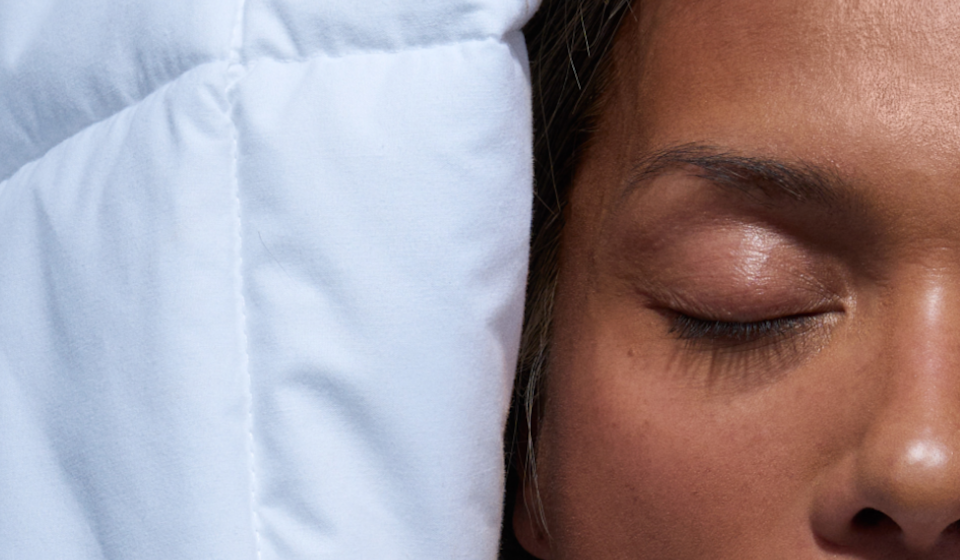Why the Effects of a Sleep Deficit Shouldn't Be Underestimated
Finding a routine with your sleep habits isn’t always easy, especially when life is rarely routine. Some nights, willingly or not, staying up is the only option. Some nights, it feels good to stay up (seven hours of sleep is overrated when you’re having fun). But, over time – even just one night a week – the deficit between how much sleep the body needs and actually receives grows. Here’s what sleep debt may cost you if you aren’t meeting your sleep needs consistently:
1. Physical Consequences
The body and brain restore and repair during sleep, and when we get fewer hours of quality sleep than we need, the body sidesteps its optimal programming. (7) Getting the ideal amount of sleep ensures our bodies operate at their best.
2. Cognitive Function Changes
The impact of sleep disruption on the brain is thought to have both a general effect on alertness and attention, multitasking, and selective effects on certain brain structures and functions. (5)
3. Emotional Well-Being Decline
The prefrontal cortex is the brain’s control center and plays a pivotal role in generating and regulating emotions. (8) Ever become irritable when you fall short on sleep? Well, that’s our brain falling short of its job. Quality sleep isn't a luxury; it's the essential fuel to our emotional health.
4. Loss of Motivation
It’s hard to want to do anything when you’re tired. And that’s not just a feeling—brain function and sleep are so inextricably linked that when the balance is off, the body and brain aren’t in the optimal zone for creativity and productivity.
At night, you cycle through the stages of non-rapid eye movement (NREM) and rapid eye movement (REM) sleep multiple times. In order to have high-quality, restorative sleep, we need to pass through these stages every night consistently. If we start the day with a sleep deficit, daytime napping can temporarily restore cognitive function and alertness enough to get you through to bedtime again, but because a nap isn’t long enough to cycle through all the sleep stages, it doesn’t remedy lack of sleep. This is the same reason that “banking” sleep isn’t the same as getting a full night’s sleep.
Here’s How to Avoid Sleep Debt & Recover From Lost Sleep
Some studies have shown that it can take up to four days to recover from one hour of missed sleep and up to nine days to eliminate it completely. (9) This is because it’s not a one-for-one situation: you can’t steal an hour here and simply pay it back later.
Understanding how much sleep our bodies need and getting enough of it is the key to minimizing sleep debt. An hour here or there might not feel significant at the time, but come morning, you run the risk of feeling tired. The good news is that improving your sleep hygiene is simple by starting with these small but impactful changes:
• Set a sleep schedule
Going to sleep and waking up at the same time every day helps prioritize sleep and ensure you’re getting enough high-quality rest. It also helps support our sleep-wake cycle and circadian rhythm, which allows the body and brain to recognize bedtime signals, get to sleep, and wake up.
• Start a bedtime routine
Dim the lights at least 30 minutes before bedtime, leave your phone in the other room (or at least refrain from looking at the screen), and practice a relaxing activity like breathwork, reading, or stretching before bed. Intentionally winding down encourages the body to prepare for a really good sleep.
• Switch up your lifestyle
If you find yourself awake and alert when you should be sleepy, it can be useful to track your daytime activities to understand if there’s a correlation between what you’re doing and sleep. Drinking caffeine late in the day, not getting enough sunlight or exercise throughout the day, or exercising too close to bedtime can all make rest challenging.
• Set up for sleep
Dim the lights, pull down the blackout blinds if you have them, and create an atmosphere that’s conducive to sleep. Ear plugs, headphones, or a sound machine can help block distractions and keep you asleep for longer, too.
Sleep experts and scientists agree that more research is needed to fully understand the long-term effects of sleep debt. It’s easier to prioritize adequate sleep rather than try to repay the debt of sleep deprivation. Our Sleep BioSeries™ is designed to optimize melatonin release throughout the night to support a natural sleep-wake cycle. Melatonin supports helps support falling asleep and restful sleep so you can feel ready to take on the day.*










